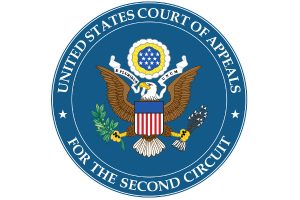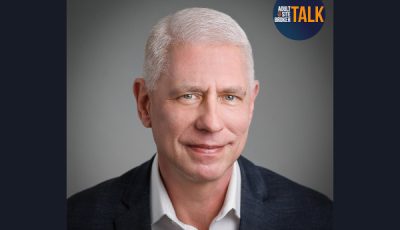Appellate Court: No PPP Loans For Adult Businesses
 BUFFALO, N.Y. — A gentlemen’s club sued the Small Business Administration (SBA) in a federal district court in the Western District of New York. The club, Pharaohs GC Inc., was forced to shut down in March of 2020 due to stay-at-home orders brought on by the COVID-19 pandemic.
BUFFALO, N.Y. — A gentlemen’s club sued the Small Business Administration (SBA) in a federal district court in the Western District of New York. The club, Pharaohs GC Inc., was forced to shut down in March of 2020 due to stay-at-home orders brought on by the COVID-19 pandemic.
District Judge Lawrence J. Vilardo declined Pharaohs GC’s motion for a preliminary injunction in June after the company’s ownership applied for an SBA guaranteed loan made available by the Paycheck Protection Program (PPP) and was turned down by a local financial institution. Vilardo also said that the plaintiffs were unlikely to succeed in their argument alleging that the PPP loan program’s restrictions on businesses who practice activities of ‘live performances of a prurient sexual nature’ was unconstitutional.
Due to Vilardo’s opinion, counsel representing Pharaohs — HoganWillig PLLC operating in Western New York — appealed to the U.S. Court of Appeals for the Second Circuit seeking a judicial review. However, a three-judge panel on the Second Circuit upheld the lower court’s ruling, which rejected the initial request for an order granting payment of denied PPP funds to Pharaohs. The New York Law Journal reports that Pharaohs applied for about $345,000 in PPP funds to pay its 76 employees and to cover other overhead costs. Yet, this request was denied. The unanimous panel ruled that the company and its counsel were unable to succeed on their arguments that the prurience restriction was inconsistent with federal law. The federal law in question is the CARES Act, which authorized over $659 billion in federal safety-net funds to stimulate businesses impacted by the pandemic.
SBA issued regulations excluding businesses who earn revenue through the sale of “products or services, or the presentation of any depiction or display, of a prurient sexual nature.
Attorney Maxine Lynn, an intellectual property attorney from Albany, New York, commented on the SBA’s regulations in April of 2020. She notes: “The application for PPP loans includes exclusion language mirroring that of a United States federal regulation, 37 CFR § 120.110 (called herein “the Regulation”), which states: The following types of businesses are ineligible:…(p) Businesses which: (1) Present live performances of a prurient sexual nature; or (2) Derive directly or indirectly more than de minimis gross revenue through the sale of products or services, or the presentation of any depictions or displays, of a prurient sexual nature.”
Per the appellate court’s decision in the instance of Pharoahs, Congress gave the SBA’s administrator the discretion to issue PPP regulations on the types of businesses that can receive support through the PPP program and that the declining of these applicants wasn’t a violation of the First Amendment.
The Second Circuit ruling runs counter to other rulings in federal district and appellate courts across the United States, though. The Free Speech Coalition (FSC) drew attention to this.
“The court’s assessment seems at odds with rulings elsewhere,” said Mike Stabile, a spokesperson for the FSC. Stabile told YNOT that after consulting with the group’s team of lawyers, he has concluded that the ruling in the Second Circuit is an apparent rebuke of the judgments reached in similar cases heard in the Sixth and Seventh Circuit Courts. According to the Chicago Tribune, clubs like the Admiral Theatre in Chicago and an establishment known as Little Darlings, based in Flint, MI., were both granted wins entitling these businesses to funds. In both cases, the courts determined that prurience wasn’t an extraordinary claim to deny business access to support funds approved by the CARES Act.
Another case heard in the U.S. District Court for the Eastern District of Wisconsin issued a similar decision in May of 2020, granting several clubs in the state a preliminary injunction that enjoins the SBA to offer aid from the PPP program. YNOT reported at the time that District Judge Lynn Adelman was “unimpressed by the government’s defense of its position” regarding the prurience regulation in the loan program.
Adelman noted that while “the purpose of the SBA regulation is highly relevant to this case,” SBA and the federal government’s defendants “made no serious effort to identify it.”
“Instead, the government vaguely asserts that ‘[t]he SBA adopted this rule in furtherance of its statutory mandate to consider the public interest when directing its limited resources,’” the judge added. “But presumably everything the government does is in the public interest. Thus, a naked reference to the public interest says nothing about the regulation’s purpose.”
“The PPP loan application makes exceptions for businesses of a ‘prurient’ nature,” Stabile added. “But legally, prurience is rather limited and defined as a “shameful or morbid interest in nudity, sex, or excretion.”
Outside of clubs and other performance venues, the cases described here also carry impact for performers who monetize through platforms such as OnlyFans, Chaturbate, ManyVids, Pornhub, ModelHub, and others. If a class action of performers is brought against the SBA claiming content discrimination and First Amendment violations, the case law determined by the rulings discussed here would serve crucial in the litigation of such an action. Currently, I am not aware of any such legal action other than the challenges from performance venues and clubs elsewhere.
Counter to the sentiment of the Second Circuit, FSC piloted a PPP loan application platform with SBA approved lenders focused on providing performers — many often viewed by the Internal Revenue Service as an independent contractor, single-person LLC, or a sole proprietorship — much-needed access to the second round of PPP loans signed into active law a few weeks ago.
FSC, according to its Twitter page, has helped fifty people get approved for PPP loans. YNOT reported on FSC’s announcement of the PPP loan application program which is a partnership with Blueacorn — a firm working with non-profit community development banks.
“During the first round of PPP loans, too many adult businesses and independent contractors didn’t apply or didn’t believe they qualified,” said Michelle L. LeBlanc, the executive director of the FSC, in a statement. “Our businesses deserve the same access to relief funds as those in other industries.”













